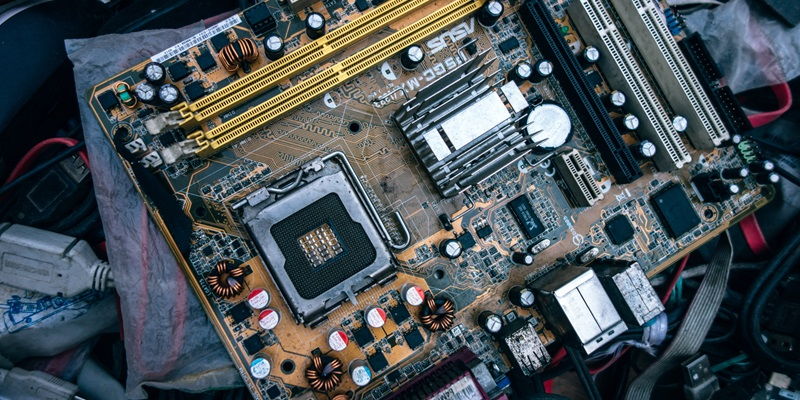MSI, a leading manufacturer in the PC hardware industry, has recently released its highly anticipated Z790 MAX motherboards. One key feature of these motherboards is the inclusion of the latest USB4 Add-In-Card (AIC), designed to provide users with unmatched transfer speeds. In this article, we will delve into the details of the USB4 AIC, its compatibility with different specifications, and its incredible performance capabilities.
Overview of the USB4 Standard and Compatibility
Introduced in 2019, the USB4 standard has revolutionized the connectivity landscape. It offers compatibility with USB3, Thunderbolt 3 (TB3), and Thunderbolt 4 (TB4) specifications. This ensures that users can enjoy seamless connectivity with a wide range of devices and peripherals, providing a unified solution for all their connectivity needs.
Usability of USB4 with Add-In-Cards
One of the exceptional features of USB4 is its compatibility with Add-In-Cards (AICs). These AICs can be easily installed onto a PCIe connector in your PC, offering additional I/O connectivity. This flexibility allows users to expand their system capabilities and connect a multitude of devices simultaneously, creating a more efficient and versatile workstation.
The ASMedia ASM424X Controller Series
MSI’s decision to ship the USB4 AIC with the Z790 MAX motherboards is backed by the robust ASMedia ASM424X controller series. This controller series provides a reliable and efficient interface for the USB4 AIC, ensuring optimal performance and transfer speeds.
Impressive Features of the USB4 Add-In-Card
The USB4 AIC from MSI is packed with an array of impressive features. It boasts two USB 4.0 Type-C ports, allowing for rapid data transfer and charging capabilities. Additionally, it offers two DP 1.4 ports, enabling users to connect multiple high-resolution displays. With transfer speeds of up to 40 Gbps, this AIC ensures lightning-fast data transfer, significantly enhancing productivity. Moreover, it supports 100W power charging, allowing for quick and efficient charging of compatible devices.
PCIe 4.0 x4 Interface vs. Thunderbolt 4
The USB4 AIC features a PCIe 4.0 x4 interface, providing substantial bandwidth for data transfer. It is worth noting that Thunderbolt 4 supports a 3.0 x4 interface, highlighting the superior performance capabilities of USB4. This further solidifies USB4’s position as the go-to standard for users seeking optimum performance and speed.
Performance testing of the USB4 AIC
To evaluate the performance of the MSI PD100W USB4 AIC, extensive testing was conducted on the MPG Z790 Carbon MAX WIFI motherboard. The AIC was connected to a Samsung 980 M.2 SSD housed in an external enclosure. Test results showcased the exceptional performance of the USB4 AIC, delivering impressive data transfer speeds and ensuring smooth and efficient operations.
Exceptional Results in Benchlife’s Testing
The USB4 AIC from MSI garnered acclaim in the testing conducted by Benchlife. The results showcased the card’s ability to achieve transfer speeds of over 3700 MB/s (~29 Gbps), which significantly surpasses the peak speeds achievable with Thunderbolt 4 interfaces. This exemplary performance reaffirms MSI’s commitment to providing top-of-the-line hardware for its customers.
USB4 enclosures and expansion cards
While USB4 enclosures are already available in the market, the range of expansion cards supporting the USB4 standard is still limited. MSI, however, took the lead by being the first to introduce and offer a USB4 AIC with its Z790 motherboards. This expansion card not only enhances connectivity options but also ensures that users can fully utilize the capabilities of the USB4 standard.
The launch of MSI’s Z790 MAX motherboards, equipped with the impressive USB4 Add-In-Card, has transformed the connectivity landscape. With its unrivaled transfer speeds, extensive compatibility, and remarkable performance, the USB4 AIC is a game changer. As MSI continues to innovate, users can expect more cutting-edge solutions that push the boundaries of what is possible in the world of PC hardware. So, gear up and experience the future of connectivity with MSI’s Z790 MAX motherboards and the USB4 Add-In-Card.

